Examine the minds of the authors who dared to defy, question, and inspire change. These scholars, rebels, and visionaries made lasting impacts on the history of literature with books that revolutionized the world.
The Origin of Species by Charles Darwin
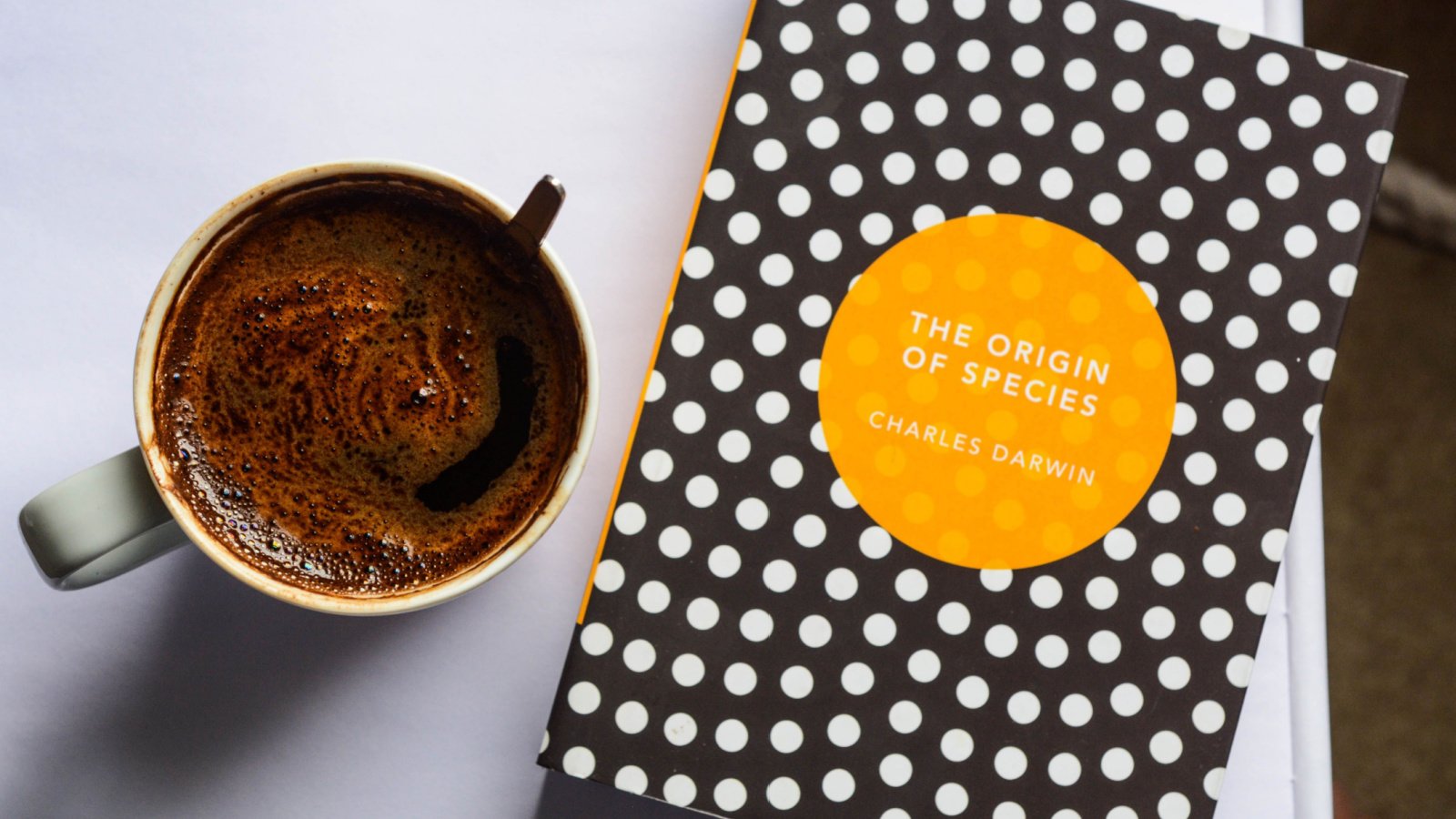
In 1859, Charles Darwin introduced a theory that would challenge the very foundation of society’s beliefs about life on Earth. The Origin of Species proposed evolution through natural selection, sparking debates among scientists, theologians, and the general public. Darwin’s meticulous observations and groundbreaking conclusions reshaped how we understand our place in the natural world.
1984 by George Orwell
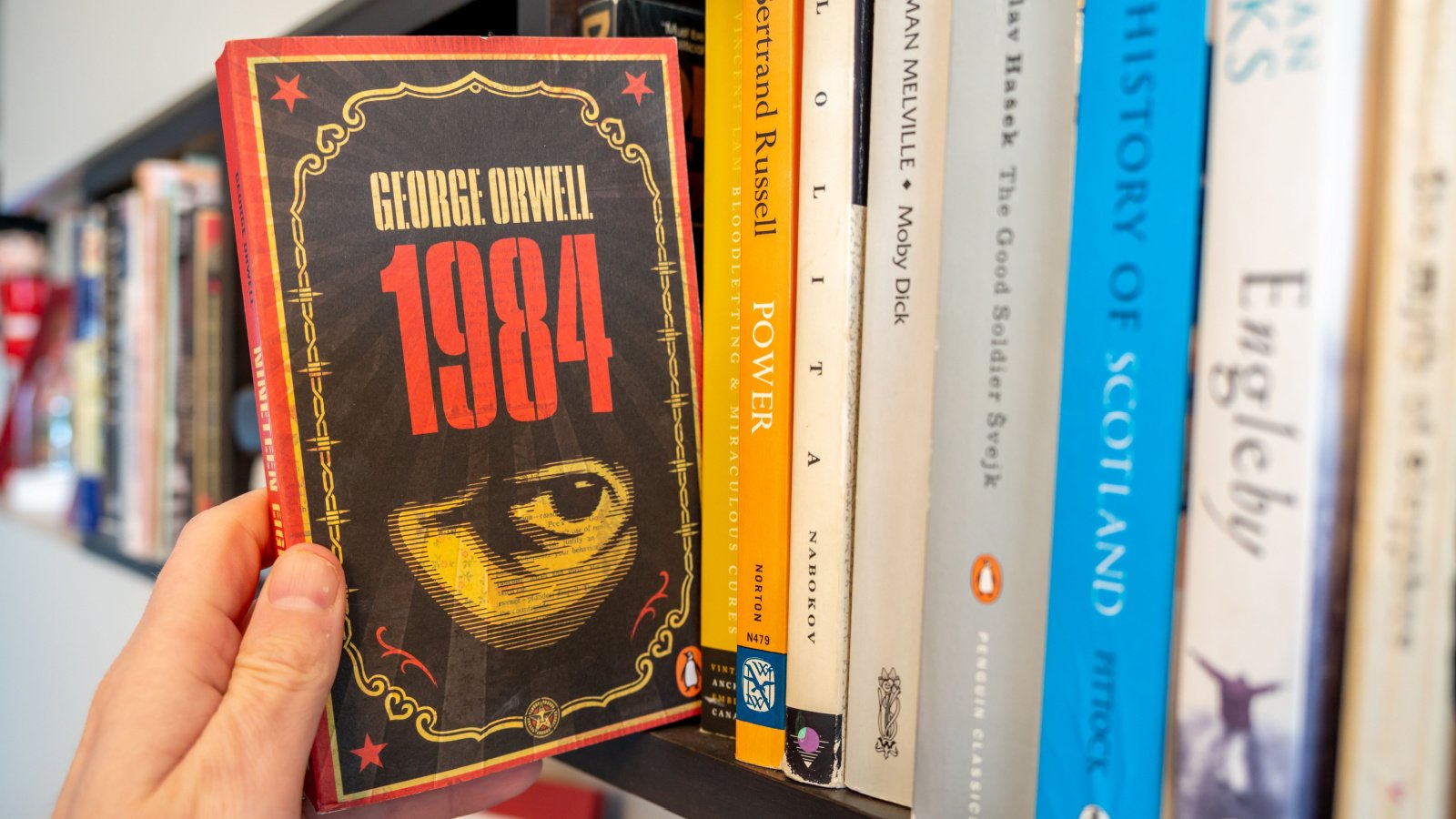
George Orwell’s dystopian masterpiece, 1984, painted a harrowing picture of a totalitarian regime that exerted control through constant surveillance, propaganda, and historical revisionism. Written in 1949, it was a cautionary tale about the dangers of unchecked government power and the erosion of individual freedoms. Orwell’s vivid portrayal of a society where “Big Brother is watching you” continues to resonate.
The Second Sex by Simone de Beauvoir

When Simone de Beauvoir published The Second Sex in 1949, she broke new ground in discussing gender, identity, and feminism. De Beauvoir challenged the patriarchal society’s view of women as the “Other” and advocated for women’s autonomy and liberation. Her thorough analysis of women’s oppression and her call for equality sparked a wave of feminist thought and action. This book remains a foundational text in feminist philosophy and gender studies.
Silent Spring by Rachel Carson

Rachel Carson’s Silent Spring, published in 1962, is often credited with launching the modern environmental movement. Through her compelling narrative, Carson exposed the dangers of indiscriminate pesticide use, particularly DDT, on wildlife and human health. Her work led to a nationwide ban on DDT and the eventual establishment of the U.S. Environmental Protection Agency.
The Communist Manifesto by Karl Marx and Friedrich Engels
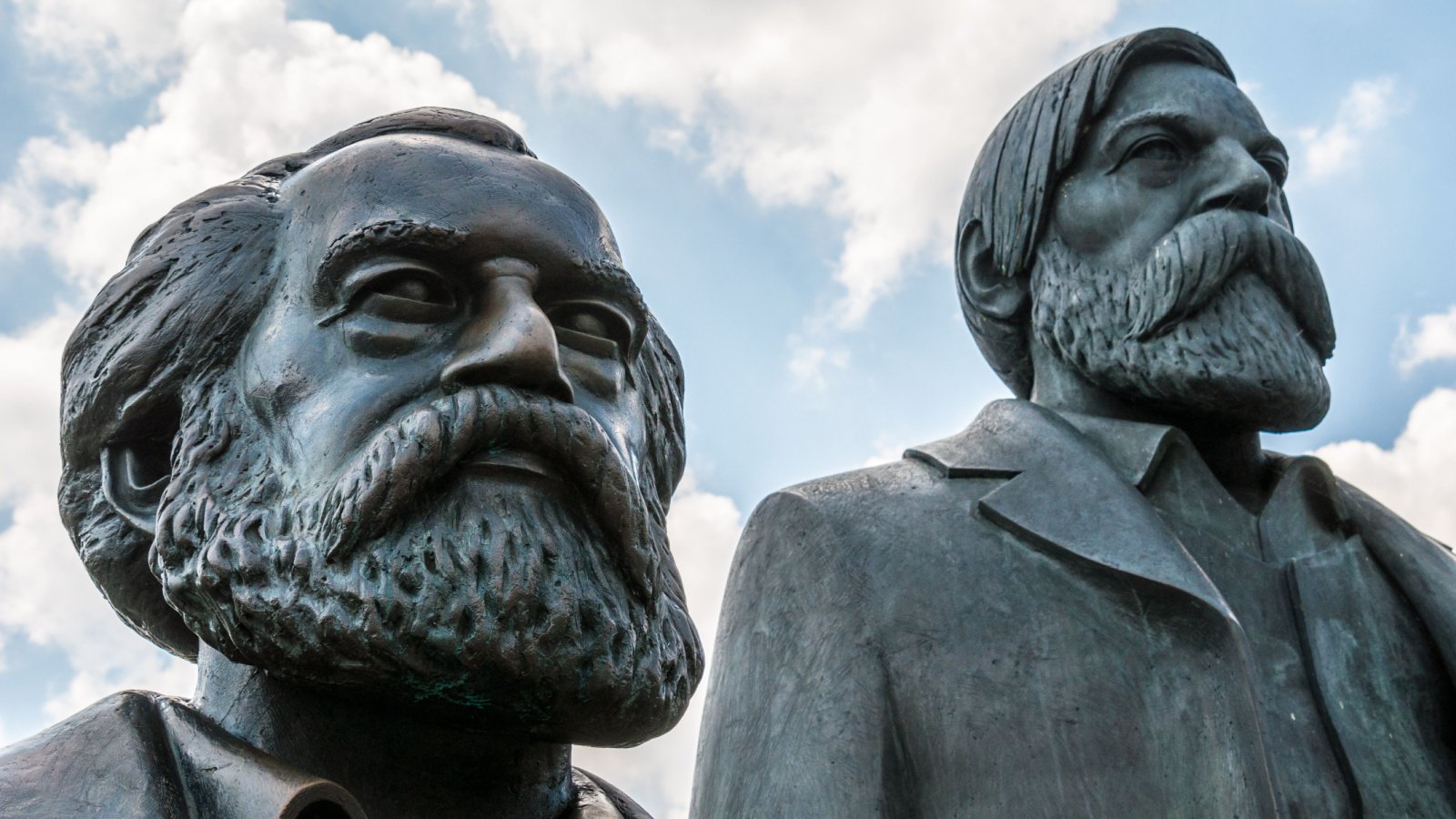
In 1848, Karl Marx and Friedrich Engels published a pamphlet that would become one of history’s most influential political documents. The Communist Manifesto called for the working class to rise against the bourgeoisie and abolish capitalist society. Its ideas about class struggle, capitalism, and communism inspired revolutions and shaped political thought across the globe. The manifesto continues to be a crucial text for understanding economic and social theories.
To Kill a Mockingbird by Harper Lee
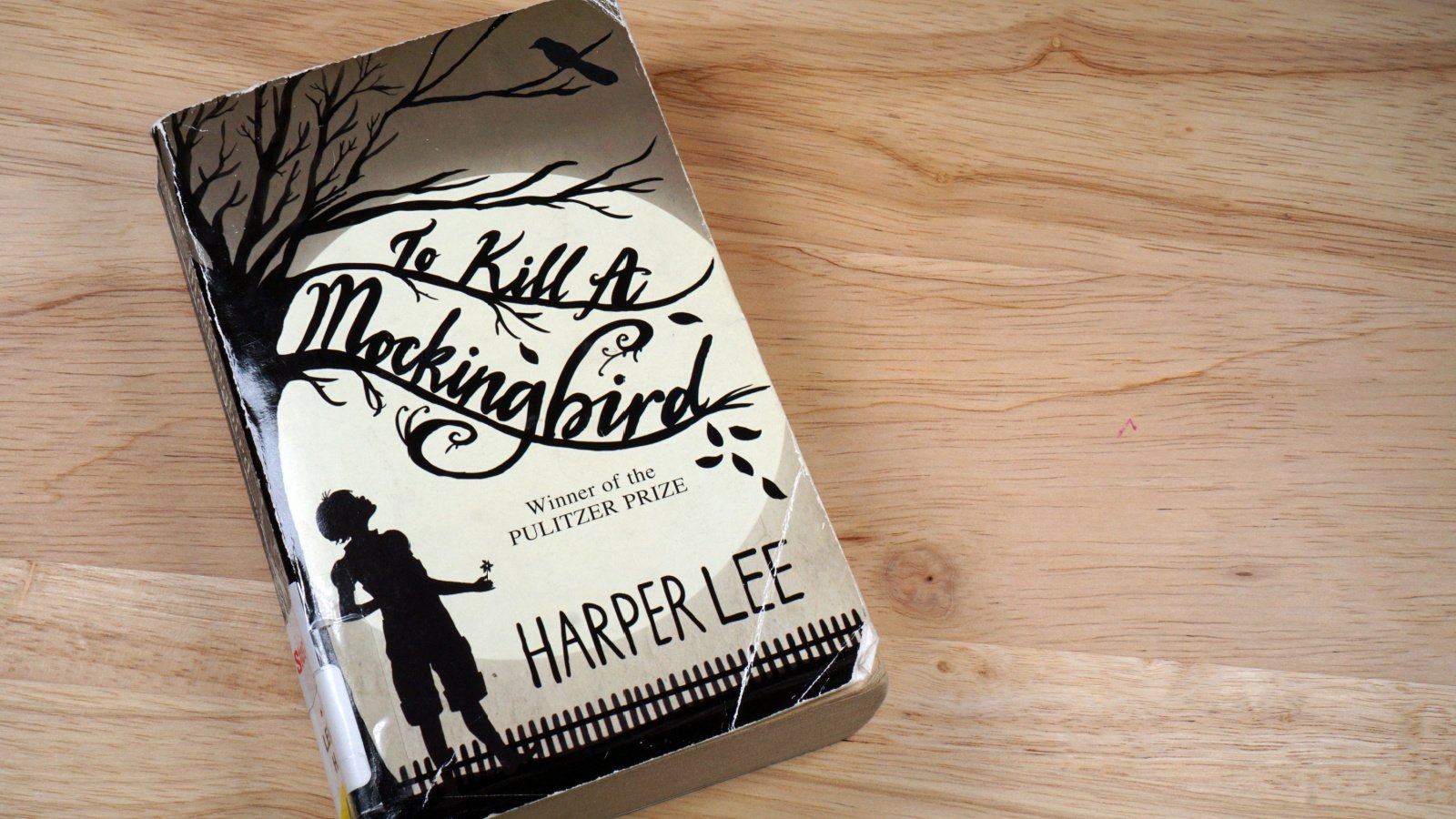
Harper Lee’s To Kill a Mockingbird, set in the Deep South during the 1930s, confronts the ingrained racial prejudice and injustice of the time. Through the eyes of the young protagonist, Scout, readers experience the growth of social awareness and the importance of empathy and moral integrity. Lee’s novel, published in 1960, became a critical tool for discussing race relations in America and remains a staple in educational curricula for its enduring themes of justice and equality.
The Diary of a Young Girl by Anne Frank

Anne Frank’s diary offers a poignant and deeply personal insight into the life of a Jewish teenager hiding from the Nazis in Amsterdam during World War II. Her reflections on fear, hope, and humanity amidst the horrors of the Holocaust have touched millions of readers worldwide. Published posthumously, Anne’s diary humanizes the tragic loss of life during the war and serves as a powerful reminder of the consequences of hatred and bigotry.
Uncle Tom’s Cabin by Harriet Beecher Stowe

Harriet Beecher Stowe’s Uncle Tom’s Cabin was a sensational success upon its publication in 1852, fueling the abolitionist movement in the United States. Stowe’s portrayal of the brutal realities of slavery and her empathetic characterizations stirred a public outcry that intensified the national debate over slavery. President Abraham Lincoln reputedly called Stowe “the little lady who started this great war.”
The Feminine Mystique by Betty Friedan

Betty Friedan’s The Feminine Mystique, published in 1963, sparked a second wave of feminism in the United States by challenging the idealized role of women as housewives and mothers. Friedan’s exploration of “the problem that has no name” resonated with countless women who felt unfulfilled by societal expectations. Her work paved the way for discussions about women’s rights, workplace equality, and reproductive freedom.
On Liberty by John Stuart Mill

John Stuart Mill’s On Liberty, published in 1859, is a passionate defense of individual freedom and expression. Mill argued that society should only exert control over an individual’s actions to prevent harm to others, advocating for personal and political liberties. His ideas on liberty, utilitarianism, and the limits of governmental power continue to influence democratic thought and the development of human rights.
I Know Why the Caged Bird Sings by Maya Angelou

Maya Angelou’s autobiography, I Know Why the Caged Bird Sings, recounts her life from childhood to young adulthood, dealing with themes of racism, trauma, and recovery. Angelou’s lyrical prose and candid narrative shed light on the resilience of the human spirit in the face of adversity. Published in 1969, her story inspires readers to find strength and beauty in their own stories, contributing to a broader understanding of the African American experience.
Brave New World by Aldous Huxley
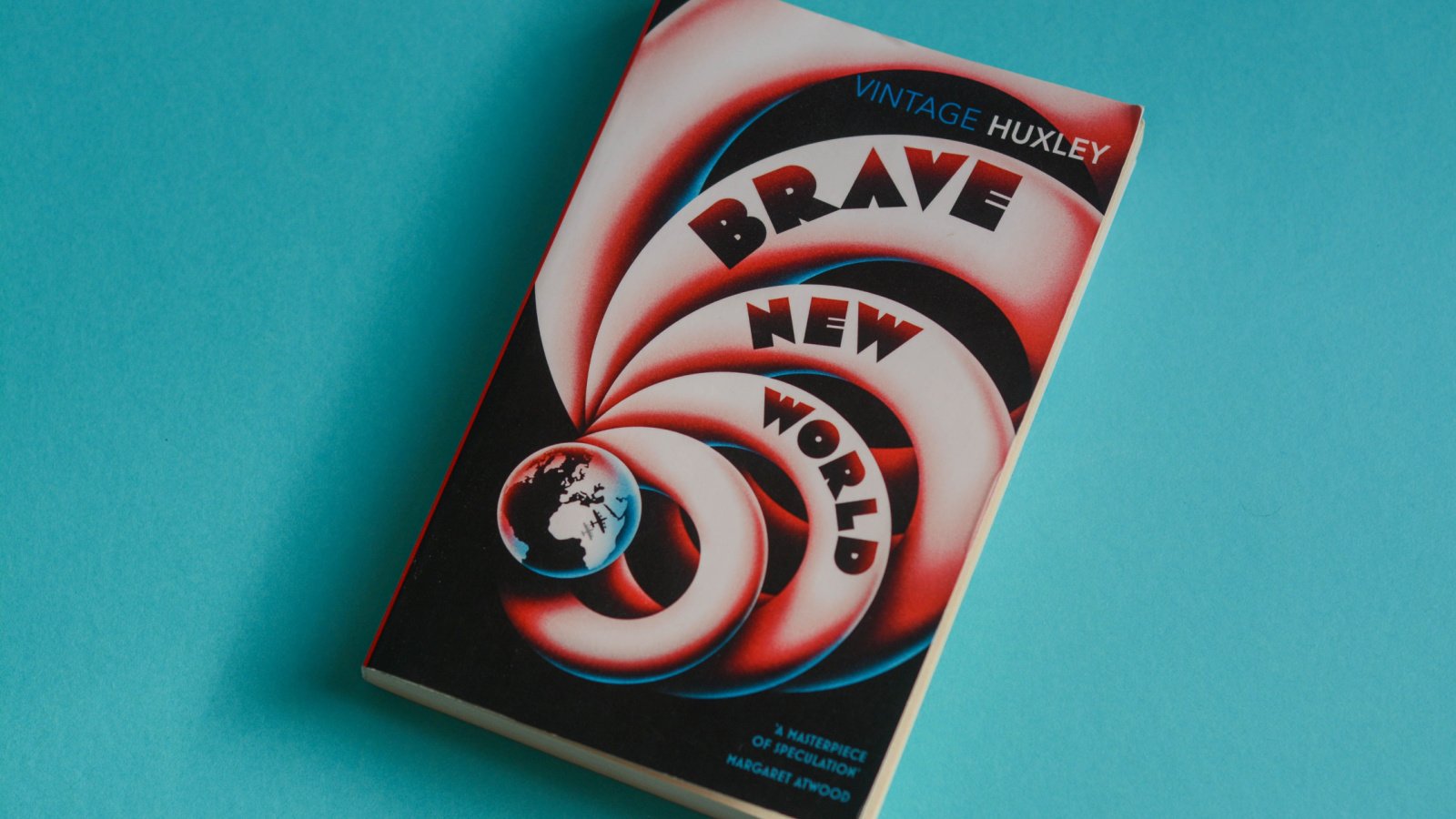
Aldous Huxley’s Brave New World presents a future society where human individuality and emotion are engineered out of existence to maintain stability and order. Published in 1932, this dystopian novel critiques the pursuit of pleasure and conformity over intellectual freedom and individuality. Huxley’s vision of a world sacrificing humanity for societal control is a cautionary tale about the loss of personal identity and autonomy.
Das Kapital by Karl Marx
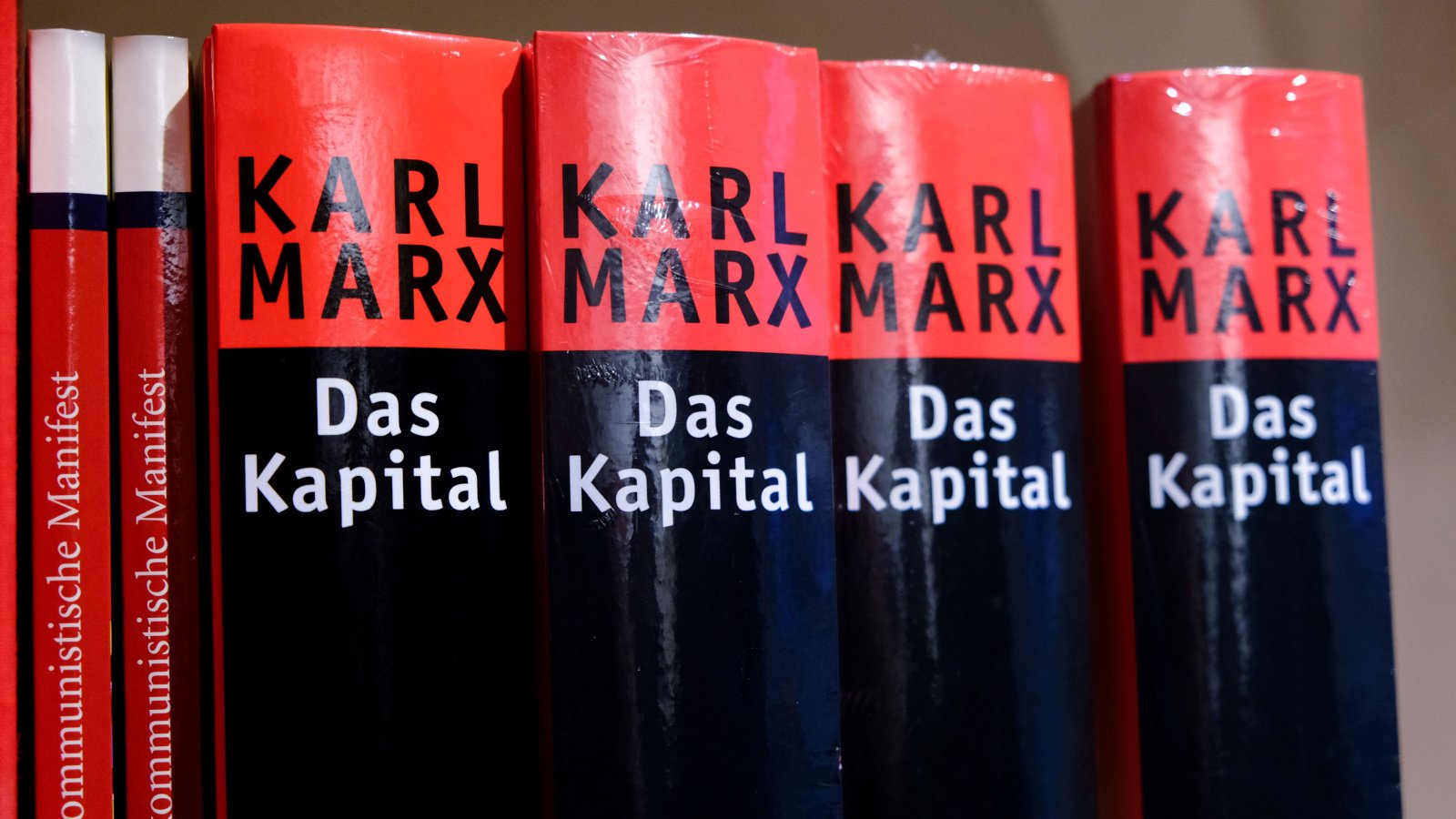
Das Kapital, Karl Marx’s critical analysis of capitalism, delves into the intricacies of economic systems and their impact on society. Published in 1867, Marx’s exhaustive study of capitalism’s dynamics, including labor, production, and distribution, provided a theoretical foundation for socialist thought. Das Kapital remains a seminal work in understanding economic theories and continues to influence debates on capitalism and its alternatives.
A Vindication of the Rights of Woman by Mary Wollstonecraft

Mary Wollstonecraft’s A Vindication of the Rights of Woman, published in 1792, stands as one of the earliest works of feminist philosophy. Wollstonecraft argued for women’s education and their inclusion in political and intellectual life, challenging the prevailing notion of women’s inferiority. Her advocacy for gender equality and women’s rights laid the groundwork for future feminist movements and the ongoing struggle for equal opportunities.
The Souls of Black Folk by W.E.B. Du Bois

W.E.B. Du Bois’ The Souls of Black Folk, published in 1903, offers a profound exploration of African American life at the turn of the 20th century. Du Bois’ blend of history, sociology, and personal narrative confronts the reality of racism and the concept of “double consciousness” experienced by African Americans. His work is a cornerstone of African American literature and a critical examination of race relations in the United States.
The Republic by Plato

Plato’s The Republic is a philosophical dialogue that explores justice, order, and character in an ideal society. Written around 380 BC, this foundational text of Western philosophy presents Plato’s vision of a just society governed by philosopher-kings. The Republic challenges readers to consider the nature of justice and the role of education.
The Wealth of Nations by Adam Smith

Adam Smith’s The Wealth of Nations, published in 1776, is often considered the blueprint for modern economics. Smith introduced the concept of the “invisible hand” concept, arguing that free-market economies are self-regulating. His ideas on economic growth, division of labor, and free trade have shaped economic policies and the global economic system. Smith’s work remains a fundamental text in the study of economics and capitalism.
The Handmaid’s Tale by Margaret Atwood

Margaret Atwood’s The Handmaid’s Tale is a dystopian novel that imagines a future America where women are subjugated and stripped of their rights. Published in 1985, Atwood’s tale of totalitarianism and theocracy warns of the dangers of extremism and the suppression of women’s rights. The novel has sparked discussions on feminism, power, and autonomy, becoming more relevant in contemporary debates around gender and politics.
Civil Disobedience by Henry David Thoreau

Henry David Thoreau’s essay Civil Disobedience, published in 1849, advocates for nonviolent resistance to unjust laws. Thoreau’s personal act of defiance against taxation that supported slavery and the Mexican-American War inspired future leaders and movements advocating for social and political change. His philosophical reflections on government and individual conscience continue to influence civil rights activists and political thinkers.
The Catcher in the Rye by J.D. Salinger

J.D. Salinger’s The Catcher in the Rye, published in 1951, captures the disillusionment and angst of adolescence through its protagonist, Holden Caulfield. Salinger’s portrayal of teenage alienation and rebellion resonated with a generation and sparked discussions on identity, society, and the challenges of growing up. The novel’s candid exploration of complex themes and its critique of adult hypocrisy has made it an enduring symbol of youthful defiance.
The Fire Next Time by James Baldwin

James Baldwin’s The Fire Next Time, published in 1963, is a powerful exploration of race, religion, and identity in America. Through essays and letters, Baldwin addresses the deep-seated racial tensions and the potential for transformative change. His eloquent and incisive prose calls for a confrontation of racial injustices and a reimagining of American society. Baldwin’s work remains a critical voice in discussions on race and equality in the United States.







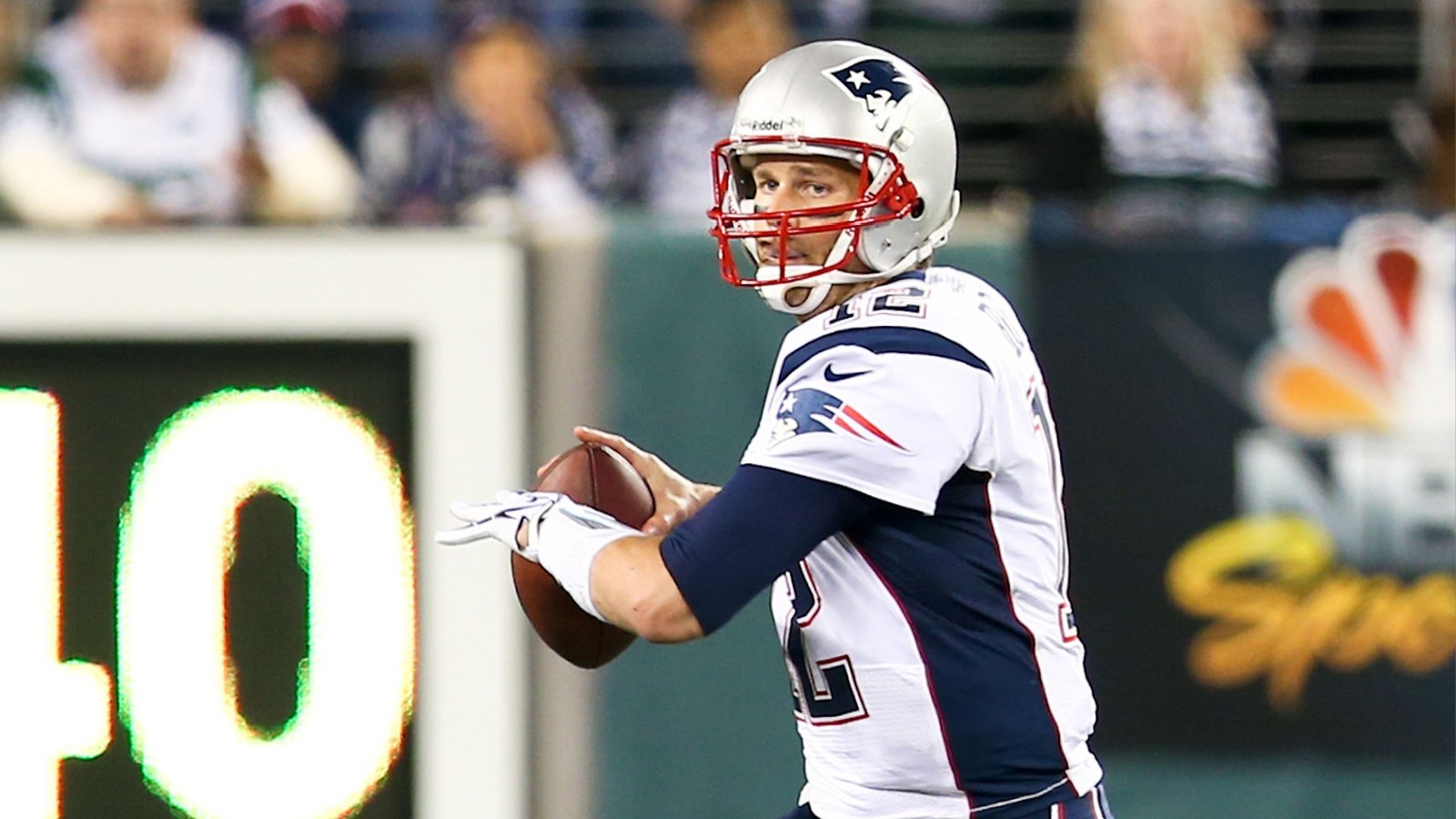

https://semaglupharm.com/# Semaglu Pharm
http://semaglupharm.com/# Buy Rybelsus online USA
http://prednipharm.com/# drug prices prednisone
rosuvastatin dose for adults: how long does crestor stay in your system – CrestorPharm
Crestor Pharm CrestorPharm Crestor Pharm
lipitor class action lawsuit: Lipi Pharm – Cheap Lipitor 10mg / 20mg / 40mg
https://semaglupharm.com/# SemagluPharm
SemagluPharm: Rybelsus 3mg 7mg 14mg – Semaglu Pharm
Lipi Pharm Lipi Pharm USA-based pharmacy Lipitor delivery
Buy statins online discreet shipping: CrestorPharm – Buy cholesterol medicine online cheap
http://semaglupharm.com/# oral semaglutide cost
https://crestorpharm.shop/# how long crestor stays in system
PredniPharm: buy prednisone online paypal – PredniPharm
CrestorPharm Crestor Pharm crestor max dose
https://semaglupharm.com/# is 50 units of semaglutide a lot
lipitor and memory loss: Lipi Pharm – Lipi Pharm
Crestor Pharm: CrestorPharm – Safe online pharmacy for Crestor
https://semaglupharm.shop/# SemagluPharm
PredniPharm prednisone 30 mg buy prednisone 10mg
LipiPharm: FDA-approved generic statins online – Lipi Pharm
https://semaglupharm.com/# semaglutide syringe
CrestorPharm: Crestor Pharm – Order rosuvastatin online legally
prednisone price canada buy prednisone 50 mg PredniPharm
Rybelsus 3mg 7mg 14mg: Semaglu Pharm – what is the most common side effect of rybelsus?
atorvastatin cause ed: No RX Lipitor online – lipitor side effects
https://semaglupharm.com/# diabetes drug rybelsus
п»їBuy Lipitor without prescription USA Lipi Pharm Lipi Pharm
Semaglu Pharm: SemagluPharm – SemagluPharm
https://semaglupharm.com/# Rybelsus 3mg 7mg 14mg
http://semaglupharm.com/# SemagluPharm
PredniPharm: PredniPharm – Predni Pharm
compound rybelsus Semaglu Pharm Order Rybelsus discreetly
http://semaglupharm.com/# how many units is .25 mg of semaglutide
prednisone 40 mg tablet: Predni Pharm – prednisone brand name canada
Predni Pharm generic over the counter prednisone Predni Pharm
PredniPharm: Predni Pharm – where can you buy prednisone
https://semaglupharm.shop/# semaglutide diarrhea
Order Rybelsus discreetly: rybelsus for weight loss – rybelsus prescription
https://semaglupharm.com/# best injection site for semaglutide
LipiPharm Cheap Lipitor 10mg / 20mg / 40mg Lipi Pharm
Predni Pharm: prednisone online sale – prednisone tablets 2.5 mg
https://semaglupharm.com/# Rybelsus side effects and dosage
п»їBuy Lipitor without prescription USA: LipiPharm – Cheap Lipitor 10mg / 20mg / 40mg
Crestor home delivery USA CrestorPharm Generic Crestor for high cholesterol
http://semaglupharm.com/# Semaglu Pharm
Online pharmacy Rybelsus: Semaglutide tablets without prescription – SemagluPharm
que es crestor: does crestor make you sleepy – does rosuvastatin cause muscle pain
Predni Pharm Predni Pharm prednisone brand name canada
https://semaglupharm.com/# SemagluPharm
https://semaglupharm.shop/# SemagluPharm
LipiPharm: LipiPharm – LipiPharm
CrestorPharm: crestor 5mg price – picture of rosuvastatin 20 mg
http://semaglupharm.com/# how long after semaglutide injection side effects
India Pharm Global: India Pharm Global – cheapest online pharmacy india
india pharmacy mail order: India Pharm Global – indian pharmacy paypal
https://canadapharmglobal.com/# canadian king pharmacy
canadian pharmacy mall canadian pharmacy mall canadian pharmacy
https://indiapharmglobal.com/# online shopping pharmacy india
canadian pharmacy com: Canada Pharm Global – online canadian pharmacy reviews
mexican online pharmacies prescription drugs: purple pharmacy mexico price list – Meds From Mexico
https://canadapharmglobal.com/# best canadian online pharmacy
reliable canadian pharmacy reviews canadian pharmacy 24 northwest pharmacy canada
India Pharm Global: top 10 pharmacies in india – reputable indian pharmacies
best online pharmacies in mexico: mexican rx online – Meds From Mexico
https://indiapharmglobal.com/# indian pharmacy paypal
https://canadapharmglobal.shop/# 77 canadian pharmacy
best canadian pharmacy canada drugs canada drugs
canadian pharmacy ed medications: Canada Pharm Global – reddit canadian pharmacy
cheapest online pharmacy india: India Pharm Global – buy medicines online in india
http://medsfrommexico.com/# Meds From Mexico
my canadian pharmacy Canada Pharm Global canadian pharmacy online
mexico pharmacies prescription drugs: Meds From Mexico – mexican border pharmacies shipping to usa
India Pharm Global: buy prescription drugs from india – reputable indian online pharmacy
https://indiapharmglobal.shop/# India Pharm Global
п»їbest mexican online pharmacies Meds From Mexico п»їbest mexican online pharmacies
India Pharm Global: India Pharm Global – top 10 pharmacies in india
https://canadapharmglobal.shop/# best canadian online pharmacy
top online pharmacy india: buy prescription drugs from india – India Pharm Global
India Pharm Global india pharmacy India Pharm Global
the canadian drugstore: Canada Pharm Global – pharmacies in canada that ship to the us
http://indiapharmglobal.com/# India Pharm Global
india online pharmacy: India Pharm Global – cheapest online pharmacy india
http://medsfrommexico.com/# Meds From Mexico
online shopping pharmacy india India Pharm Global india pharmacy mail order
https://indiapharmglobal.shop/# top online pharmacy india
Online medicine home delivery: India Pharm Global – top online pharmacy india
India Pharm Global: India Pharm Global – indian pharmacy paypal
http://indiapharmglobal.com/# India Pharm Global
Meds From Mexico Meds From Mexico Meds From Mexico
Meds From Mexico: medication from mexico pharmacy – mexican drugstore online
https://medsfrommexico.com/# Meds From Mexico
reputable mexican pharmacies online: Meds From Mexico – medication from mexico pharmacy
https://efarmaciait.com/# EFarmaciaIt
samyr pastiglie EFarmaciaIt inderal 40 mg prezzo
meds online: stetoskop apotek – bettskena apotek
Rask Apotek: svarte munnbind apotek – Rask Apotek
https://efarmaciait.com/# loette opinioni
apotek netthandel levere medisiner apotek probiotic apotek
Papa Farma: farmacia gastos de envГo gratis 10 euros – Papa Farma
Papa Farma: Papa Farma – micostatin crema
https://raskapotek.com/# Rask Apotek
Papa Farma Papa Farma farmacia en madrid
gentalyn beta simili: EFarmaciaIt – EFarmaciaIt
https://raskapotek.com/# Rask Apotek
Rask Apotek: kondomer apotek – Rask Apotek
gips apotek: Rask Apotek – hagtorn apotek
senshio recensioni negative zoely foglietto illustrativo lucen bustine 10 mg prezzo
https://efarmaciait.com/# abiostil unguento nasale
EFarmaciaIt: locoidon prurito anale – canesten bambini pannolino
spray nasale in gravidanza forum EFarmaciaIt EFarmaciaIt
https://efarmaciait.com/# EFarmaciaIt
skavsГҐrsplatta apotek: Svenska Pharma – munskydd svart apotek
Rask Apotek: Rask Apotek – glidekrem apotek
http://efarmaciait.com/# caffГЁ brucia grassi recensioni negative
sahlgrenska apotek Svenska Pharma Svenska Pharma
https://raskapotek.shop/# Rask Apotek
parafarmacia crema: farmacia online palermo – EFarmaciaIt
Rask Apotek: kaliumpermanganat apotek – Rask Apotek
farmacias 24h barcelona Papa Farma farmscis
https://efarmaciait.com/# farmacia online senza spese spedizione
Rask Apotek: Rask Apotek – isbind apotek
Svenska Pharma: Svenska Pharma – Svenska Pharma
http://efarmaciait.com/# delecit flaconi prezzo
EFarmaciaIt miglior integratore omega-3 per bambini permixon 320 mg farmacia online
http://svenskapharma.com/# apotek till salu
medicamentos farmacia: Papa Farma – Papa Farma
magnesiumolje apotek: Rask Apotek – Rask Apotek
https://papafarma.shop/# Papa Farma
ger ägglossningstest alltid utslag vid graviditet pocketböcker billigt Svenska Pharma
serum la roche posay opiniones: Papa Farma – Papa Farma
Svenska Pharma: Svenska Pharma – Svenska Pharma
https://svenskapharma.com/# Svenska Pharma
http://raskapotek.com/# Rask Apotek
Svenska Pharma tampong apotek amoxicillin apotek
farmacias abiertas hoy murcia: Papa Farma – famrcia
sitronsyre apotek: Rask Apotek – Rask Apotek
http://efarmaciait.com/# EFarmaciaIt
farmacia dieci fucicort crema costo travocort senza ricetta
http://raskapotek.com/# målebånd kropp apotek
farmacia 24h malaga: cuanto tarda en hacer efecto movicol sobres – genericos online
https://svenskapharma.com/# Svenska Pharma
kjГёnnssykdommer test apotek sjekke fГёflekker apotek apotek open
Svenska Pharma: Svenska Pharma – 1987 klГ¤der
Pharma Connect USA PharmaConnectUSA lorazepam pharmacy online
https://pharmaconfiance.com/# Pharma Confiance
Benicar: PharmaConnectUSA – clozapine registered pharmacy
medicij: nieuwe pharma – landelijke apotheek
https://medicijnpunt.com/# apotheek on line
Pharma Confiance monuril ordonnance ou pas Pharma Confiance
https://pharmajetzt.com/# bestellapotheken
meilleur produit bГ©bГ© pharmacie: comment avoir du viagra – mycose nez chat
cipro online pharmacy: eu online pharmacy – PharmaConnectUSA
http://pharmajetzt.com/# apotheke bestellen
online pharmacy provigil modafinil amoxicillin people’s pharmacy Pharma Connect USA
pharmacie newpharma: pharmacie belgique en ligne – Pharma Confiance
https://pharmaconnectusa.com/# Pharma Connect USA
medicijn recept: MedicijnPunt – afbeelding medicijnen
http://pharmaconnectusa.com/# percocet no prescription pharmacy
Pharma Confiance Pharma Confiance Pharma Confiance
medicatie bestellen online: medicijne – MedicijnPunt
PharmaConnectUSA: PharmaConnectUSA – PharmaConnectUSA
https://medicijnpunt.shop/# MedicijnPunt
PharmaConnectUSA overseas pharmacy cialis Pharma Connect USA
https://pharmaconnectusa.com/# Pharma Connect USA
online apotheek nederland zonder recept: Medicijn Punt – MedicijnPunt
medicijnen zonder recept met ideal: Medicijn Punt – pharmacy online
https://medicijnpunt.shop/# Medicijn Punt
buy viagra online us pharmacy Pharma Connect USA Pharma Connect USA
PharmaConnectUSA: clomiphene citrate online pharmacy – Pharma Connect USA
http://pharmajetzt.com/# apotheken versand
PharmaConnectUSA: percocet pharmacy online no prescription – Pharma Connect USA
https://pharmaconfiance.com/# actualités pharmacie
http://pharmaconfiance.com/# Pharma Confiance
target pharmacy flonase: Pharma Connect USA – PharmaConnectUSA
PharmaConnectUSA Pharma Connect USA Pharma Connect USA
PharmaJetzt: apotheke onlin – apotheke online
http://pharmaconfiance.com/# Pharma Confiance
ma santГ© store: Pharma Confiance – pharmacie en ligbe
shop apotheke auf rechnung: PharmaJetzt – versandapotheke shop apotheke
PharmaConnectUSA online pharmacy testosterone cypionate PharmaConnectUSA
https://medicijnpunt.shop/# MedicijnPunt
http://pharmajetzt.com/# PharmaJetzt
allergie ketoprofene: distribution de de grГўce – oГ№ acheter du cialis en france sans ordonnance
tel pharmacie: gode distance – acheter kamagra site fiable forum
http://medicijnpunt.com/# Medicijn Punt
PharmaConnectUSA target pharmacy wellbutrin price fluconazole tesco pharmacy
schnellste online apotheke: PharmaJetzt – PharmaJetzt
Pharma Connect USA: Pharma Connect USA – PharmaConnectUSA
pre pharmacy courses online abilify pharmacy assistance rx express pharmacy hurley ms
Pharma Confiance: Pharma Confiance – cialis mГ©dicament
https://pharmajetzt.shop/# gГјnstig online apotheke
https://pharmajetzt.com/# Pharma Jetzt
Pharma Connect USA: Pharma Connect USA – inhouse pharmacy finpecia
PharmaJetzt metaflow rabattcode PharmaJetzt
Medicijn Punt: medicijn – farmacie medicijn
http://medicijnpunt.com/# MedicijnPunt
Pharma Connect USA: PharmaConnectUSA – Pharma Connect USA
https://pharmaconfiance.shop/# Pharma Confiance
Pharma Confiance: amoxicilline 500 enfant – ggp montpellier
https://pharmaconfiance.com/# Pharma Confiance
Pharma Confiance: Pharma Confiance – pharmacie homeopathie lille
PharmaJetzt: Pharma Jetzt – shop apotheke versandapotheke
Pharma Connect USA: cialis pharmacy cost – Pharma Connect USA
https://pharmaconnectusa.com/# plavix pharmacy coupon
Pharma Confiance: Pharma Confiance – Pharma Confiance
Pharma Jetzt: PharmaJetzt – PharmaJetzt
https://pharmaconnectusa.shop/# Pharma Connect USA
https://pharmaconfiance.shop/# Pharma Confiance
verzorgingsproducten apotheek: MedicijnPunt – onlineapotheek
tadalafil prise quotidienne: pharmacД±e – doliprane chat forum
https://pharmaconnectusa.shop/# real pharmacy rx generic viagra
Pharma Confiance: Pharma Confiance – pharmacie ouverte aujourd’hui grenoble
MedicijnPunt: apotheek webshop – online apotheke
https://pharmajetzt.com/# PharmaJetzt
Pharma Jetzt: obline apotheke – PharmaJetzt
Medicijn Punt: MedicijnPunt – MedicijnPunt
https://pharmaconnectusa.shop/# Pharma Connect USA
medicijnen kopen: apotheek on line – apotheken
shp apotheke: schopapotheke – PharmaJetzt
https://pharmaconfiance.shop/# pharmacie pres de moi
internetapotheek: medicijnen aanvragen – online medicijnen bestellen
online medicijnen bestellen met recept: Medicijn Punt – pharma online
https://pharmajetzt.shop/# apotal versandapotheke online
PharmaConnectUSA: antibacterial – Pharma Connect USA
https://medicijnpunt.shop/# Medicijn Punt
versandapotheken in deutschland: online medikamente bestellen – apotheke gГјnstig online
https://medicijnpunt.com/# snel medicijnen bestellen
Pharma Jetzt: meine shop apotheke – Pharma Jetzt
MedicijnPunt: apotheek apotheek – onl8ne drogist
https://pharmajetzt.com/# online apotheken deutschland
Medicijn Punt: Medicijn Punt – Medicijn Punt
apotheek recept: online apotheek 24 – apotgeek
http://medicijnpunt.com/# inloggen apotheek
niederlande apotheke: betrouwbare online apotheek zonder recept – MedicijnPunt
https://medicijnpunt.com/# Medicijn Punt
fucidine crГЁme prix: Pharma Confiance – bebe 15 jours 120 ml
Pharma Confiance: Pharma Confiance – france gdp
https://pharmajetzt.shop/# Pharma Jetzt
proviron pharmacie: france gdp – Pharma Confiance
Medicijn Punt medicijnen zonder recept kopen pharma online
http://pharmajetzt.com/# Pharma Jetzt
medicijnen kopen: apotgeek – MedicijnPunt
http://pharmaconfiance.com/# amande et migraine
Pharma Confiance: Pharma Confiance – sildenafil 100 mg durГ©e de l’effet prix
apotheken nederland: apotheek bestellen – MedicijnPunt
PharmaJetzt versandapotheke bad steben shopaptheke
Medicijn Punt: medicatie online – online pharmacy netherlands
http://pharmaconnectusa.com/# generic zoloft online pharmacy
PharmaJetzt: medikamente corona apotheke – pille kaufen apotheke
pharmacie de garde dans l’hГ©rault: paraphamacie – Pharma Confiance
Pharma Confiance Pharma Confiance livraison medicament paris
http://pharmaconfiance.com/# Pharma Confiance
online isotretinoin pharmacy: PharmaConnectUSA – PharmaConnectUSA
MedicijnPunt: online apotheek goedkoper – MedicijnPunt
PharmaConnectUSA: buy ambien online pharmacy – Pharma Connect USA
https://pharmaconfiance.com/# guide homéopathie en ligne gratuit
apotheek online nederland: MedicijnPunt – niederlande apotheke
new pharma belgique amoxicilline sommeil algotherm lyon
https://pharmajetzt.shop/# online-apotheke
pharmacie gГ©nГ©rale: arkopharma mon compte – comment bien utiliser le sildГ©nafil
abotheke: PharmaJetzt – apotheke auf rechnung bestellen
https://pharmaconnectusa.com/# PharmaConnectUSA
PharmaConnectUSA Pharma Connect USA cymbalta pharmacy price
Pharma Confiance: Pharma Confiance – Pharma Confiance
PharmaConnectUSA: meds online – compare pharmacy prices
http://pharmajetzt.com/# medikamente günstig bestellen
europa apotheek venlo online: Pharma Jetzt – medikamente bestellen ohne rezept
http://pharmaconnectusa.com/# paxil pharmacy
cialis commande Pharma Confiance Pharma Confiance
pharmacie allemagne: Pharma Confiance – sante disocunt
http://pharmaconnectusa.com/# Pharma Connect USA
PharmaConnectUSA: Pharma Connect USA – crestor pharmacy card
onlineapothele: Pharma Jetzt – Pharma Jetzt
zantac pharmacy Pharma Connect USA Pharma Connect USA
https://pharmajetzt.com/# Pharma Jetzt
http://pharmaconnectusa.com/# cabergoline pharmacy
apteka den haag: MedicijnPunt – MedicijnPunt
PharmaConnectUSA: allopurinol online pharmacy – Pharma Connect USA
best canadian pharmacy cheap canadian pharmacy online best canadian pharmacy online
https://canrxdirect.shop/# legit canadian online pharmacy
IndiMeds Direct: IndiMeds Direct – india pharmacy
п»їbest mexican online pharmacies: TijuanaMeds – TijuanaMeds
https://indimedsdirect.shop/# IndiMeds Direct
https://canrxdirect.com/# canadian pharmacy king reviews
IndiMeds Direct IndiMeds Direct online pharmacy india
indian pharmacies safe: indian pharmacy online – cheapest online pharmacy india
legit canadian pharmacy: CanRx Direct – real canadian pharmacy
https://tijuanameds.com/# mexico pharmacies prescription drugs
TijuanaMeds: mexican border pharmacies shipping to usa – buying prescription drugs in mexico
TijuanaMeds TijuanaMeds TijuanaMeds
https://indimedsdirect.com/# Online medicine order
https://tijuanameds.shop/# mexico drug stores pharmacies
TijuanaMeds: TijuanaMeds – medicine in mexico pharmacies
canadian online drugstore CanRx Direct canadian pharmacy 24h com safe
https://indimedsdirect.com/# IndiMeds Direct
canadian drugs: canadian pharmacy online – canadian pharmacy online
IndiMeds Direct IndiMeds Direct cheapest online pharmacy india
http://indimedsdirect.com/# IndiMeds Direct
best online pharmacies in mexico: TijuanaMeds – buying prescription drugs in mexico online
http://canrxdirect.com/# northern pharmacy canada
https://canrxdirect.shop/# canadian pharmacy in canada
IndiMeds Direct: best online pharmacy india – IndiMeds Direct
IndiMeds Direct: п»їlegitimate online pharmacies india – IndiMeds Direct
IndiMeds Direct top 10 online pharmacy in india IndiMeds Direct
http://canrxdirect.com/# cheap canadian pharmacy online
mexican drugstore online: purple pharmacy mexico price list – TijuanaMeds
canadian pharmacy world: best online canadian pharmacy – reputable canadian pharmacy
buy medicines online in india IndiMeds Direct IndiMeds Direct
http://canrxdirect.com/# canadian pharmacy checker
indian pharmacy: best online pharmacy india – IndiMeds Direct
TijuanaMeds: TijuanaMeds – TijuanaMeds
https://rxfreemeds.shop/# RxFree Meds
elocon cream boots pharmacy voltaren online pharmacy quetiapine online pharmacy
farmacia es: Farmacia Asequible – medicamentos a domicilio
enclomiphene testosterone: enclomiphene – enclomiphene for sale
http://farmaciaasequible.com/# comprar stromectol
https://enclomiphenebestprice.com/# buy enclomiphene online
enclomiphene price enclomiphene enclomiphene buy
enclomiphene: enclomiphene – enclomiphene online
RxFree Meds: RxFree Meds – RxFree Meds
http://farmaciaasequible.com/# Farmacia Asequible
optum rx pharmacy: RxFree Meds – RxFree Meds
RxFree Meds RxFree Meds viagra from us pharmacy
enclomiphene for sale: enclomiphene testosterone – enclomiphene for men
http://farmaciaasequible.com/# opiniones zzzquil
online pharmacy uk doxycycline: nizoral boots pharmacy – the online pharmacy
enclomiphene for sale enclomiphene for men buy enclomiphene online
RxFree Meds: target pharmacy bupropion – RxFree Meds
https://enclomiphenebestprice.shop/# enclomiphene price
enclomiphene testosterone enclomiphene testosterone enclomiphene best price
Farmacia Asequible: nombre de farmacias – farmacias online espaГ±a
buy enclomiphene online: enclomiphene price – enclomiphene for men
https://enclomiphenebestprice.com/# enclomiphene for sale
https://rxfreemeds.com/# compound pharmacy online
cialis pharmacy rx one: australian pharmacy cialis – viagra online pharmacy review
https://farmaciaasequible.shop/# Farmacia Asequible
https://rxfreemeds.shop/# purdue pharmacy store
asda pharmacy viagra prices: nexium indian pharmacy – RxFree Meds
https://enclomiphenebestprice.com/# enclomiphene buy
http://farmaciaasequible.com/# parmacia
comprar stromectol: Farmacia Asequible – cariban genГ©rico
enclomiphene for sale enclomiphene for sale enclomiphene online
http://farmaciaasequible.com/# opiniones eucerin hyaluron filler
enclomiphene online enclomiphene online enclomiphene for men
https://enclomiphenebestprice.shop/# enclomiphene for sale
enclomiphene: enclomiphene price – enclomiphene testosterone
cymbalta pharmacy coupons RxFree Meds RxFree Meds
enclomiphene citrate: enclomiphene testosterone – enclomiphene
RxFree Meds mexican pharmacy weight loss priligy in malaysia+pharmacy
http://enclomiphenebestprice.com/# enclomiphene best price
enclomiphene for sale enclomiphene citrate enclomiphene testosterone
parapharmacia: Farmacia Asequible – Farmacia Asequible
RxFree Meds RxFree Meds RxFree Meds
http://farmaciaasequible.com/# Farmacia Asequible
pharmacy error methotrexate RxFree Meds callao pharmacy generic viagra
Farmacia Asequible: cepillo elГ©ctrico oral b pro 3 – farmacias web
enclomiphene for men enclomiphene for men enclomiphene online
https://rxfreemeds.com/# RxFree Meds
Farmacia Asequible: Farmacia Asequible – ahorro direct
buy enclomiphene online buy enclomiphene online buy enclomiphene online
https://enclomiphenebestprice.com/# enclomiphene testosterone
enclomiphene buy: enclomiphene price – enclomiphene buy
Farmacia Asequible Farmacia Asequible Farmacia Asequible
Farmacia Asequible mejor crema de pies ocu ozempic insomnio
Farmacia Asequible: para farmacia – Farmacia Asequible
https://rxfreemeds.com/# RxFree Meds
anti-depressants RxFree Meds clobetasol cream online pharmacy
RxFree Meds: Zestoretic – authentic cialis online pharmacy
ozempic spanien Farmacia Asequible Гіptica alcosa
RxFree Meds Seroflo RxFree Meds
Farmacia Asequible: Farmacia Asequible – viagra comprar online
buy enclomiphene online enclomiphene for men enclomiphene citrate
enclomiphene for sale: enclomiphene for men – enclomiphene citrate
Farmacia Asequible farmacia salud Farmacia Asequible
https://farmaciaasequible.com/# Farmacia Asequible
enclomiphene online: enclomiphene buy – enclomiphene for sale
enclomiphene best price enclomiphene for men enclomiphene best price
https://rxfreemeds.com/# buy naltrexone from trusted pharmacy
RxFree Meds: RxFree Meds – RxFree Meds
enclomiphene for sale enclomiphene testosterone enclomiphene best price
enclomiphene price: buy enclomiphene online – enclomiphene for sale
http://enclomiphenebestprice.com/# enclomiphene buy
https://enclomiphenebestprice.shop/# enclomiphene best price
enclomiphene buy: enclomiphene citrate – enclomiphene for men
cheap viagra pharmacy online pharmacy uk viagra generic viagra us pharmacy
online shopping pharmacy india: mail order pharmacy india – pharmacy website india
online pharmacy generic valtrex: generic pharmacy propecia – tesco artane pharmacy
http://indomedsusa.com/# IndoMeds USA
https://indomedsusa.shop/# top online pharmacy india
best online pharmacy to buy viagra b12 injections online pharmacy mebendazole boots pharmacy
canada online pharmacy: MediSmart Pharmacy – best online canadian pharmacy
drug stores near me: MediSmart Pharmacy – walgreen store hours pharmacy
http://indomedsusa.com/# buy medicines online in india
medicine in mexico pharmacies MexiMeds Express MexiMeds Express
IndoMeds USA: IndoMeds USA – Online medicine order
best online pharmacy india: IndoMeds USA – IndoMeds USA
https://medismartpharmacy.shop/# arrow pharmacy my brand rx
https://indomedsusa.com/# IndoMeds USA
viagra online pharmacy australia toronto pharmacy online online pharmacy australia cialis
uk online pharmacy propecia: MediSmart Pharmacy – in house pharmacy propecia
https://medismartpharmacy.shop/# online pharmacy wellbutrin xl
mexican mail order pharmacies: medication from mexico pharmacy – mexico drug stores pharmacies
IndoMeds USA Online medicine order IndoMeds USA
mexico pharmacies prescription drugs: best online pharmacies in mexico – buying prescription drugs in mexico
http://medismartpharmacy.com/# viagra spain pharmacy
http://medismartpharmacy.com/# Ampicillin
MexiMeds Express: MexiMeds Express – MexiMeds Express
pharmacy website india IndoMeds USA IndoMeds USA
https://medismartpharmacy.com/# Urispas
MexiMeds Express: MexiMeds Express – mexican online pharmacies prescription drugs
top online pharmacy india: IndoMeds USA – IndoMeds USA
http://medismartpharmacy.com/# united pharmacy online
legal online pharmacy review MediSmart Pharmacy pharmacy novo venlafaxine xr
mexican rx online: MexiMeds Express – MexiMeds Express
http://meximedsexpress.com/# MexiMeds Express
IndoMeds USA: IndoMeds USA – IndoMeds USA
http://indomedsusa.com/# IndoMeds USA
MexiMeds Express purple pharmacy mexico price list MexiMeds Express
online shopping pharmacy india: IndoMeds USA – IndoMeds USA
MexiMeds Express: medication from mexico pharmacy – mexican pharmaceuticals online
https://meximedsexpress.com/# MexiMeds Express
legit online pharmacy nolvadex: MediSmart Pharmacy – india pharmacy propecia
celebrex pharmacy coupon MediSmart Pharmacy good value pharmacy
http://medismartpharmacy.com/# participating lipitor pharmacy
indian pharmacy online: IndoMeds USA – indian pharmacy paypal
https://medismartpharmacy.shop/# propecia pharmacy cost
reputable indian online pharmacy: indianpharmacy com – Online medicine home delivery
vipps online pharmacy MediSmart Pharmacy hrt online pharmacy
MexiMeds Express: mexican online pharmacies prescription drugs – MexiMeds Express
https://medismartpharmacy.com/# lamotrigine online pharmacy
mexico pharmacies prescription drugs: buying prescription drugs in mexico online – best online pharmacies in mexico
reputable indian online pharmacy IndoMeds USA п»їlegitimate online pharmacies india
https://medismartpharmacy.com/# uk online pharmacy propecia
https://meximedsexpress.shop/# mexican online pharmacies prescription drugs
IndoMeds USA: top 10 online pharmacy in india – cheapest online pharmacy india
mexico pharmacies prescription drugs: MexiMeds Express – mexican border pharmacies shipping to usa
reputable indian pharmacies best india pharmacy IndoMeds USA
http://indomedsusa.com/# buy medicines online in india
indian pharmacy online: IndoMeds USA – IndoMeds USA
mexico drug stores pharmacies MexiMeds Express MexiMeds Express
http://medismartpharmacy.com/# prescriptions online pharmacy
https://indomedsusa.com/# IndoMeds USA
online mail order pharmacy: diflucan pharmacy price – no prior prescription required pharmacy
india pharmacy mail order top online pharmacy india online pharmacy india
https://meximedsexpress.shop/# MexiMeds Express
indian pharmacy: IndoMeds USA – indianpharmacy com
https://medismartpharmacy.com/# best online pharmacy no prescription viagra
community pharmacy audit methotrexate MediSmart Pharmacy cost of viagra at pharmacy
warfarin continuing education pharmacy: inhouse pharmacy – Micardis
https://medismartpharmacy.com/# cialis us pharmacy
indianpharmacy com pharmacy website india best online pharmacy india
http://meximedsexpress.com/# mexican border pharmacies shipping to usa
http://indomedsusa.com/# IndoMeds USA
reputable indian online pharmacy: Online medicine order – IndoMeds USA
Prasugrel brazilian pharmacy online propecia pharmacy cost
https://ordinasalute.com/# aglae pillola prezzo
foster polvere prezzo: aranesp prezzo – clindamicina gel
slim ventre plat PharmaDirecte propalin sans ordonnance
https://clinicagaleno.shop/# comprar zolpiden sin receta
https://ordinasalute.com/# aminomal principio attivo
farmacia online badajoz: Clinica Galeno – comprar zopiclona sin receta chile